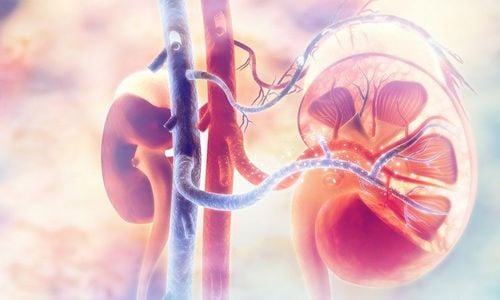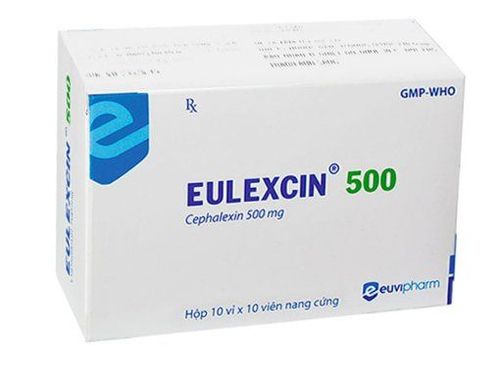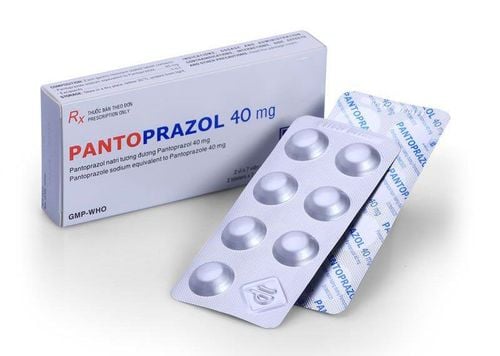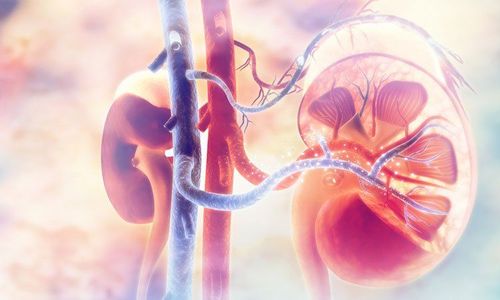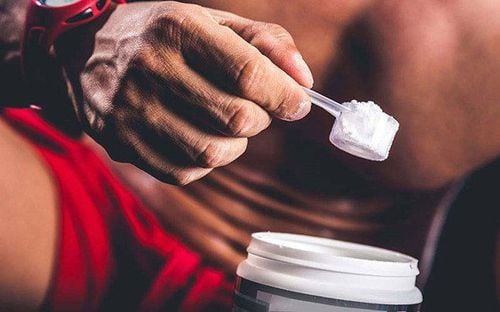This is an automatically translated article.
The article was professionally consulted with MSc Do Thi Hoang Ha - Doctor of Biochemistry, Laboratory Department - Vinmec Hai Phong International General Hospital.Quantification of creatinine is an important basis for the doctor to accurately assess the patient's kidney function. Creatinine will be assessed through a blood or urine test
1. Role of Creatinine
Creatinine is a product of the process of breaking down Creatin in the body's muscles. Creatinine in the body is of mixed origin: endogenous creatinine is mainly synthesized from the liver (from arginine and methionine), exogenous creatinine is provided by food. The kidneys maintain a constant concentration of creatinine in the blood. Creatinine is eliminated by the kidneys, so the concentration of creatinine accurately reflects the filtering function of the kidney.According to some studies, there is a relationship between functional renal nephrons and serum creatinine values. However, a 50% reduction in the number of functional nephrons causes only a slight increase in blood creatinine, only when > 50% of the number of functional nephrons is reduced will the blood creatinine concentration increase. Therefore, normal blood creatinine levels remain unchanged if the renal excretory function is normal or slightly impaired. In addition to dehydration, only kidney disorders such as acute tubular necrosis, glomerulonephritis, pyelonephritis, urinary tract obstruction,... can cause abnormally increased serum creatinine. Elevated blood creatinine levels indicate impaired kidney function, conditions that cause pre-renal failure (heart failure) or kidney disease.
Besides, after a meal, creatinine will usually increase slightly, especially after eating a large amount of protein. In addition, there is some variation during the day in Creatinine levels: Lowest at 7am and highest at 7pm.
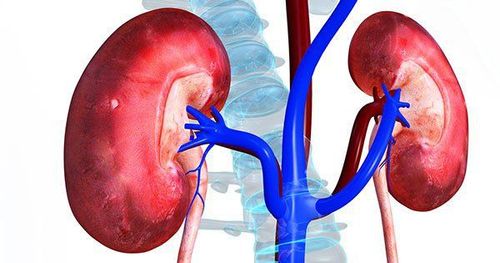
2. When should a quantitative Creatinine test be performed?
When kidney function is impaired for any reason, the patient's blood creatinine level will increase due to the decreased ability of the kidneys to clear creatinine. Therefore, quantitative blood creatinine tests are often performed to diagnose and evaluate kidney function.A more accurate assessment of kidney function is to assess the kidney's ability to remove creatinine from the plasma per unit time. The test is called creatinine clearance and it helps your doctor gauge how fast your kidneys are filtering and is done on a 24-hour urine sample.
Creatinine tests may be routinely performed as part of basic biochemical tests. This technique can also be ordered when the patient has an acute illness or when the doctor suspects that kidney function is impaired. Some warning signs of impaired kidney function include:
Fatigue, lack of concentration, insomnia, loss of appetite; Swelling, swelling in the face, abdomen, thighs, ankles; Foamy, bloody, or coffee-colored urine; Decreased urine output; Burning sensation when urinating, abnormal discharge while urinating, change in urination habits, nocturia; Pain in the hips, back, under the ribs, near the kidney; Hypertension ; In addition, the frequency of testing to quantify creatinine quickly or lightly depends on the pathology and risk of kidney damage of each patient. Specifically:
Diabetics should perform a quantitative creatinine test at least once a year; People with kidney disease should measure creatinine levels regularly to monitor their health status; People with diseases that can affect kidney function such as high blood pressure, diabetes, taking medications that have side effects on the kidneys, etc. are also advised to perform a periodic creatinine quantitative test to evaluate function. kidney.
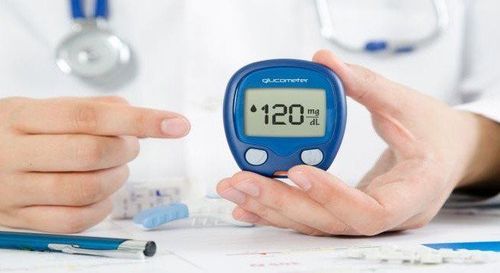
3. Quantitative Creatinine Tests
3.1 Blood Creatinine Test Quantitative blood creatinine tests are performed on a regular basis as part of basic biochemical tests. In addition, when the patient has acute diseases or the doctor doubts the kidney function, the blood creatinine test is also indicated.Some factors affect the results of a creatinine blood test including:
Certain drugs that increase blood creatinine levels such as high blood pressure drugs, heavy metal chemotherapy drugs, cimetidine, aminoglycosides or drugs other nephrotoxicity such as cephalosporins; Some other drugs such as thiazide diuretics, vancomycin, cimetidine reduce the concentration of creatinine in the blood. Muscle injury increases blood creatinine; Pregnancy or severe malnutrition causes low creatinine levels 3.2 Urine creatinine test When kidney function declines, the amount of creatinine will accumulate in the body. A urine creatinine test helps to see if the kidneys are working properly. Tests that measure serum creatinine in a 24-hour urine sample are usually ordered for patients with suspected kidney disease. If the creatinine in the body is high, it can be a warning sign of kidney disease. In addition to the creatinine test, the test is also used in conjunction with microalbuminuria to evaluate kidney function.
4. What is the normal level of Creatinine?
Creatinine concentrations in both urine and blood will be quantified and the results identified with a reference range.The serum creatinine level in healthy women is 0.5-1.1 mg/dl or 44-97 umol/l (SI units) and in healthy men it is 0.6-1.2 mg/dl or 53-106 umol/l ( SI units). In addition, the Creatinine index also depends on factors such as age, gender, body weight,... Specifically, the elderly who lose muscle mass can reduce the concentration of Creatinine. Adolescents have creatinine levels of 0.5-1.0 mg/dl, children 0.3-0.7 mg/dl, infants 0.2-0.4 mg/dl and infants 0.3-1.2 mg/dl.
5. Abnormal results after quantitative creatinine test
Increased creatinine levels: warning of the risk of pyelonephritis, glomerulonephritis, acute tubular necrosis, acute and chronic renal failure, decreased blood flow to the kidneys (shock, dehydration, atherosclerosis, congestive heart failure), renal artery stenosis, urinary tract obstruction, nephrogenic diabetes, rhabdomyolysis, renal swelling, hyperthyroidism, gout, acromegaly, gigantism, diuretics or antihypertensive drugs, high blood pressure, diabetes, renal degeneration, systemic lupus erythematosus, glomerular IgA deposition, kidney stones, multiple myeloma, nephrotoxicity, hyperuricemia, pre-cancer prostate gland, bladder tumor, uterine tumor, retroperitoneal fibrosis,... Decreased creatinine levels: body weakness, chronic liver disease, decreased muscle mass (muscle failure, muscular dystrophy, old age) or pregnant, fasting, taking anti-epileptic drugs,... Creatinine quantitative test plays an important role in the diagnosis, early detection and active treatment of kidney diseases. Therefore, if the patient is at high risk of kidney disease or has warning signs of kidney failure, the patient should soon seek a reputable medical facility to perform a creatinine level test and other diagnostic methods.Vinmec International General Hospital is one of the hospitals that not only ensures professional quality with a team of leading medical doctors, modern equipment and technology, but also stands out for its examination and consultation services. comprehensive and professional medical consultation and treatment; civilized, polite, safe and sterile medical examination and treatment space. Customers when choosing to perform tests here can be completely assured of the accuracy of test results.
Please dial HOTLINE for more information or register for an appointment HERE. Download MyVinmec app to make appointments faster and to manage your bookings easily.






